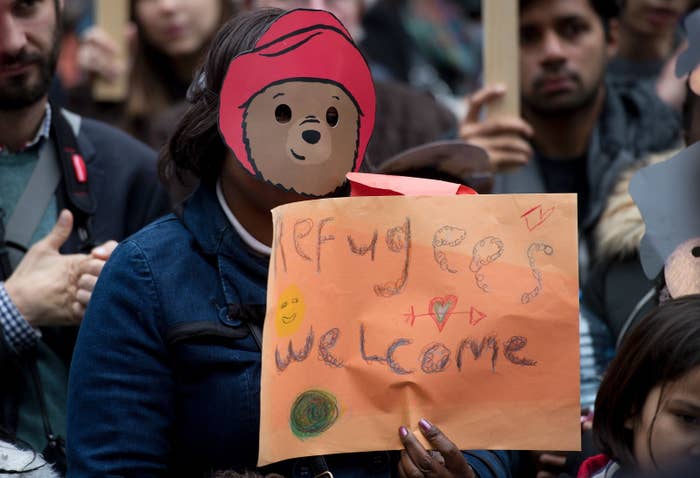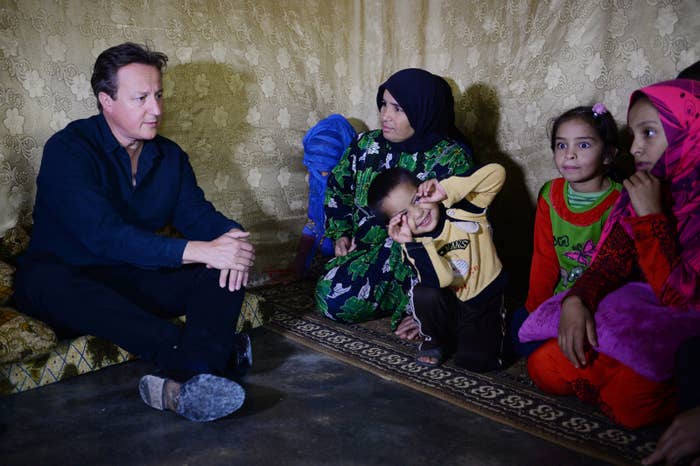
Syrian torture victims are not receiving the specialist support they are guaranteed under international law when they are resettled in the UK, MPs have warned.
More than half of the refugees being resettled under the programme created by former prime minister David Cameron experienced torture or violence in Syria.
But only a handful have been referred to receive the specialist support they are entitled to under the United Nations Convention Against Torture, of which Britain is a signatory.
In 2015, Cameron pledged to take in 20,000 refugees from countries neighbouring Syria by 2020, and according to the Home Office, 4,400 refugees have been settled already.
But today's Commons public accounts committee report says that"despite encouraging progress it will be a significant challenge" to meet Cameron's target.
A lack of understanding around the responsibilities of councils and what refugees are entitled to threatens to undermine the programme's long-term goal, the report warns.
Among the committee's recommendations is that victims of torture be identified and supported. In some cases victims were identified but after they had been resettled in parts of the country that are far from locations where specialist support is available.

Freedom From Torture, a human rights group that works to rehabilitate torture survivors seeking refuge in the UK, said there were "serious gaps" in the process of identifying victims.
"We have been referred just a handful of Syrians from this programme and our offers to assist on a bigger scale have so far been overlooked by the government," said Lucy Gregg, senior policy adviser at Freedom From Torture.
"Early identification of torture survivors and the provision of specialist clinical services are absolutely vital in ensuring that those being resettled can integrate into their host communities and are crucial to the long-term success of the programme."
Meg Hillier, chair of the committee, said it was a "stark fact" that more than half of Syrian refugees were victims of torture or violence, and it was "critical" they received specialist support.
“Our committee has previously highlighted the shortcomings in access to mental health services and we call on the government to ensure a plan is in place to properly support refugees in need of them," she said.
Immigration minister Robert Goodwill said the report "rightly recognises the progress being made in undertaking one of the largest resettlement schemes in our country's history".
Refugees have been resettled in 175 different local authorities across the UK, the Home Office said, adding that councils were asked to "consider carefully" whether they have the necessary infrastructure and support networks in place beforehand.
Goodwill continued: "We are providing substantial financial support to help local authorities provide vulnerable refugees with a safe environment and a chance to build their lives. Through our community sponsorship programme and Help Refugees in the UK website, we are also able to harness the generous offers of support and goodwill from the British public to help integrate Syrian refugees.”
